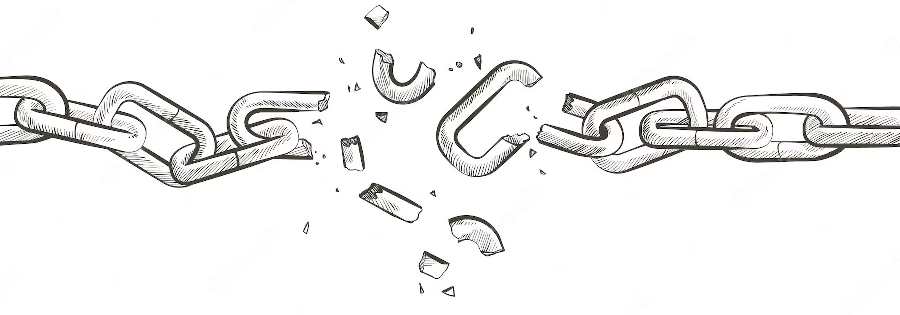Brooke’s Story

Written by Sam Shaw
Read onward to hear the incredible story of Brooke: her struggle to find her place in childhood through the landscape of an abusive home environment, her triumph over dependence on others for personal success, and the adorable monkey named Samson who helped make it all happen.



I could only trust my imagination. I couldn’t trust anybody else except for what was going on in my head, because that’s all that I could control.
Brooke’s early childhood memories of her mother, Lucy, were warm and touching but few. Unfortunately, her parents divorced when she was only two years old. While she would eventually reunite with her mother, she spent almost all of her early years of life in the custody of her father, David. Though Brooke smiles as she reminisces on building pillow forts as a youngster, her warm memories are far outnumbered by those involving a constant fear of being in trouble for things she was accused of having done, often being cruelly punished in the process whether or not she was the actual culprit.
When David remarried, this time with Linda, less than a year after his previous marriage’s collapse, the situation at home began to unravel. Linda generally ignored Brooke, with what attention she did give to her stepdaughter being largely negative. Beatings with rulers, belts, and yardsticks were a regular occurrence. But even worse than the negative attention Brooke frequently received was the general sense of apathy conveyed to her by Linda. Once, when Linda became frustrated with Brooke’s crying, Linda forced her onto her knees and placed duct tape over her mouth to silence her.

Linda brought into her marriage with David her son, Ethan, from a previous marriage. Ethan was six years older than Brooke but with the deranged mentality of a perverse predator. Not long after David’s marriage to Linda and the beginning of Brooke’s cohabitation with Ethan, he set Brooke as a target in his wicked crosshairs. Brooke loved playing with dolls, and Ethan exploited this as an opportunity to introduce her to the concept of sex. Playing escalated to touching, then touching grew into what Ethan described as roleplaying.
When barely of elementary school age, Ethan taught Brooke how to pretend to be someone else. Confused at first, wondering why Ethan and his friends were calling her by another name than her own, this “roleplay” likely contributed to Brooke’s ability to dissociate, in her therapist’s words, “better than anyone else.”
Roleplay turned into a twisted version of “seven minutes in heaven,” when Brooke was forced to spend seven minutes at a time in a closet with Ethan’s friends, naked from the waist down. This was the beginning of a pattern of physical sexual abuse perpetrated by her family and peers, soon developing into highly inappropriate adult sexual acts.
This pattern of sexual abuse grew until it reached a height of depravity, at which Ethan coerced Brooke into performing atrocious acts with her younger brother, all while Ethan’s friends were watching. Fortunately, after this incident, David and Linda became aware of this abuse. Instead of addressing it properly, however, they simply separated Brooke and Ethan and forbade them from sleeping in the same room moving forward.
Although sexual abuse did not entirely stop at this point, persisting in at least one incident involving young adult babysitters, Brooke’s abuse transformed beyond this point from sexual to primarily physical violence. Brooke became the “whipping boy” of the family, receiving the lion’s share of punishment for all of her siblings. Linda continued to punish Brooke violently for the supposed misdeeds of the entire family. When Brooke attempted to inform her dad of this abuse, her claims were ignored or otherwise dismissed entirely. In Brooke’s words,
“I could only trust my imagination. I couldn’t trust anybody else except for what was going on in my head, because that’s all that I could control.”

The only “safe spot” in Brooke’s life was with her grandparents, who were the only individuals whom she felt that she could trust. Her grandfather in particular was an oasis of solace amid a childhood of abuse.
Brooke reminisces fondly on time spent fishing with her grandfather, George. On one occasion, the duo caught an abundance of catfish, which George intended to fry for a delicious dinner. At Brooke’s insistence, however, George reluctantly tossed their cache of catfish back into the water so that they could live to see another day. Memories like this are few and far between, but Brooke smiles as she brings her mind back to this moment in time.
In daily life, the warmth of her grandparents was inaccessible to Brooke. She needed an avenue through which to cope with the undue stress of her chaotic childhood. Clever and capable of dissociating, Brooke created a secret, imaginary village under her bed. Pristine and free of any outside influence, this was her escape from daily torment. Inhabited primarily by her cheeky sock monkey, Samson, the village became a microcosm of her existence, the only threat to which was the presence of a particularly villainous witch who would soon wreak havoc on the humble hamlet.
David and Linda’s marriage ended when Brooke was 8 years old. When Linda left, the abuse that she and her children inflicted upon Brooke left as well.
Unfortunately, the reprieve from abuse was short-lived, as David found love in the heart of a new abuser. Rachel entered the picture with a teenage daughter of her own, Carol, and quickly won over the affection of David. The four settled in to create a new home with each other, hoping to form a happy family together. It wouldn’t take long for Rachel to show her true colors.
Rachel demanded perfection from herself and from her family; nothing less would do. When Brooke folded a towel in a manner not up to Rachel’s expectations, Rachel punched her in the stomach, causing her to lose her breath. On days like this, Brooke’s under-bed village became a bedlam of chaos, on occasion resulting in such traumatic experiences as witnessing Samson the monkey being thrown against the wall by the powers of the wicked witch.
On another occasion, Brooke had been informed that she was forbidden from enjoying popsicles. Creative as her mind was, she decided to circumvent this ruling by creating an alternative with nothing but water. When Rachel witnessed Brooke consuming her “icicle,” the resulting punishment was no less than six week’s grounding.
These were the primary modes of parenting presented by Rachel: physical punishment, often accompanied by emotional abuse, abject neglect, and forced isolation. Her room became her babysitter.

One day while adding sugar to peanut butter for a sweet snack with bread, Brooke accidentally spilled a bit in the kitchen where it was quickly noticed by Rachel. The ensuing abusive attempt at parenting had such a profound effect on Brooke that her dietary habits were semi-permanently altered. She stopped eating at home, whenever she could avoid doing so, and resorted to visiting friends when hungry, hoping to find a meal at their homes.
Brooke’s newfound nutritional plan appeared to work well with Rachel’s vision for her within their family unit: not often in the picture. Rachel implemented this by keeping Brooke as isolated from the rest of the family as she could manage. In Brooke’s words, “Nobody wanted to have anything to do with me.”
Despite her emotional neglect and exclusion from family goings-on, Brooke waited until high school to begin acting out in any major way. While highly intelligent, Brooke needed help in school to make sure that her academic success was guaranteed. But when she sought assistance with her schoolwork, rarely would anyone in her family come to her aid. This resulted in poor scholarship and academics, which then led to punishment, usually in the form of six weeks’ grounding.
Every person has their limit, and no one is willing to give full effort indefinitely before the desire to give up grows. Brooke eventually stopped caring, and eventually dropped out altogether in the 11th grade. No matter how hard she tried to seek positive attention, her efforts were usually in vain. “If I can’t get attention by trying to be good,” thought Brooke, “Then let’s be bad.”
Brooke became reclusive, dark, and rebellious and eventually began sneaking out of the house. At first, this was the only offense that caused her to find herself in any serious degree of trouble. However, smoking, drinking, and drugs soon found their way into Brooke’s life.
After a sustained period of rebelliousness, unrest and infighting within the family became a common occurrence. Rather than resolve their differences amicably and diplomatically, Brooke’s guardians’ solution to the problem was to kick her out of the house to live with her aunt in Texas.
Brooke’s newfound living situation was without the negative impact of a resident witch, but it was also largely devoid of love like she felt for her dear sock monkey, Samson. Her aunt, while accommodating, showed very little affection, seldom deigning even to welcome a hug.
On one occasion, her new guardian broke Brooke’s heart by uttering the words, “She’s not my daughter.” This prompted Brooke to run away and disappear for a weekend. To Brooke’s surprise, her aunt actually went looking for her and, eventually, found her dwelling with an assortment of transient folks living near a bridge. But by this time the damage was done: Brooke felt more welcomed by the “bridge people” than she did by her own family.
This sad sequence of circumstances resulted in Brooke coming to a startling but logical conclusion, specifically that, “If everyone is going to treat you like a doormat, why not be a bitch on top of that?”

Brooke’s rebellious nature led her from one set of troubled circumstances to the next, frequently relocating from the home of one family member to another. Her life was in a near-constant state of flux until she met the future father of her children.
Bob was an active duty member of the military when he crossed paths with Brooke. The two fell in love quickly, began cohabitating, and got married almost immediately. Bob appeared to offer the love and stability that Brooke had been craving all of her life, but she would soon find out that this was not the case.
Within a year, Brooke became pregnant with their first child. Around this time, Bob began to show his true colors. Emotional abuse ramped up early in the relationship and was magnified when she became pregnant. What started as name calling and insults like “ugly” and “fat” grew into half-hearted suggestions that Brooke commit suicide by jumping in front of a bus while she was carrying their child.
Bob’s emotional abuse began whittling away at Brooke’s self-confidence. His own insecurities led to controlling and possesive behavior. Brooke couldn’t spend time with friends without being accused of cheating, and she was forbidden from having social media such as Facebook.
Meanwhile, Bob’s own mental health was plummeting. Frequent binge drinking and gambling caused a host of issues for their marriage. At one point, Bob was legally forbidden from possessing alcohol while stationed in Alaska. This mandate followed an incident when he put a knife against his own throat and threatened suicide. Police arrived and arrested Bob, securing Brooke’s home environment at least for one night.
Brooke traveled with Bob all over the world as a devoted military spouse, but change of scenery did little to change her unfortunate circumstances. Emotional abuse continued incessantly, causing Brooke to break out into hives on a daily basis from stress, but support was never there when she needed it – not even on tragic days when her cherished pet dog or dear relatives fell ill and passed away. At the same time, Bob continued to maintain control over Brooke by manipulating her by forcing feelings of guilt upon her: he frequently threatened to kill himself if she left. With no one to turn to and nowhere to go, Brooke trudged on through life the only way she knew how. She carried on one day at a time, often using headphones to isolate, attempting her from Bob’s non-stop abuse.
He made me feel like I would never be able to succeed in life without him. That’s the main thing he would put in my head. He would say, “You are so ugly – so ugly that no one else is ever going to love you. I’m the only one who would want to be with you. I mean, look at your wrinkles around your eyes. I’m the only one who thinks you’re attractive. No one else ever will.”
After one particularly heated exchange, the two parted ways in divorce, but their separation would not be for long. Brooke missed seeing her kids on a daily basis, and Bob treated her with much more kindness than she was used to. This is a not-so-shining example of the reconciliation phase in the cycle of abuse, wherein lovebombing and apparent tenderness become the norm. Unfortunately, after reconciliation and a period of calm, tension inevitably begins to build leading to another incident. It’s usually just a matter of time.

Brooke and Bob retied the knot before long. As is too often the case, however, Bob’s compassionate nature began to wane not long after their second marriage. In addition to his emotional abuse, Bob took his own self-abuse to the next level, fueling the fire with gallons of alcohol. Brooke discovered empty bottles everywhere: at the bottom of trash cans, in his car, and so on. What’s more, Bob was diabetic, which meant that he was at serious risk of his blood sugar reaching dangerous levels while he was passed out. Bob’s alcohol-induced self-abuse compounded issues for himself, for Brooke, and for the entire family.
That was all that Brooke could take. She decided that her life was worth more than what Bob was willing and able to offer. She began reading and listening to the stories of other survivors, becoming intrigued by the ways in which others had overcome trauma. In doing so, Brooke realized that there was much more to life than the abuse to which she had become accustomed. She was inspired to create a better life for her and her children.
Brooke sought higher education, earning her bachelor’s degree and from there proceeding to buy a house of her own. She discovered passions in her life that had been waiting for years to surface. No longer was Samson the monkey abused by a wicked witch. Instead, painting art in the style of fantasy became a way to express the thoughts and feelings that Brooke had for so long been forced to suppress in her years of isolation and abuse. Her love of nature fostered a passion for hiking. Brooke’s nature voyages help to free her mind and let her feel the earth beneath her feet while walking confidently on solid ground.
Today, Brooke lives a vibrant life full of adventures that bring her joy. Not long ago she welcomed her first grandchild into the world. Samson the sock monkey has found his forever home, safe from any witches or wizards, and most important of all, Brooke has obtained something that was missing for most of her life: peace.

Written by Sam Shaw
Related Articles
Victoria’s Story
Victoria’s unfortunate childhood paved the way for an adulthood plagued by abuse. Following a series of dysfunctional relationships almost leading to her death, Victoria overcame the odds to live triumphantly in a new, happy life.




0 Comments